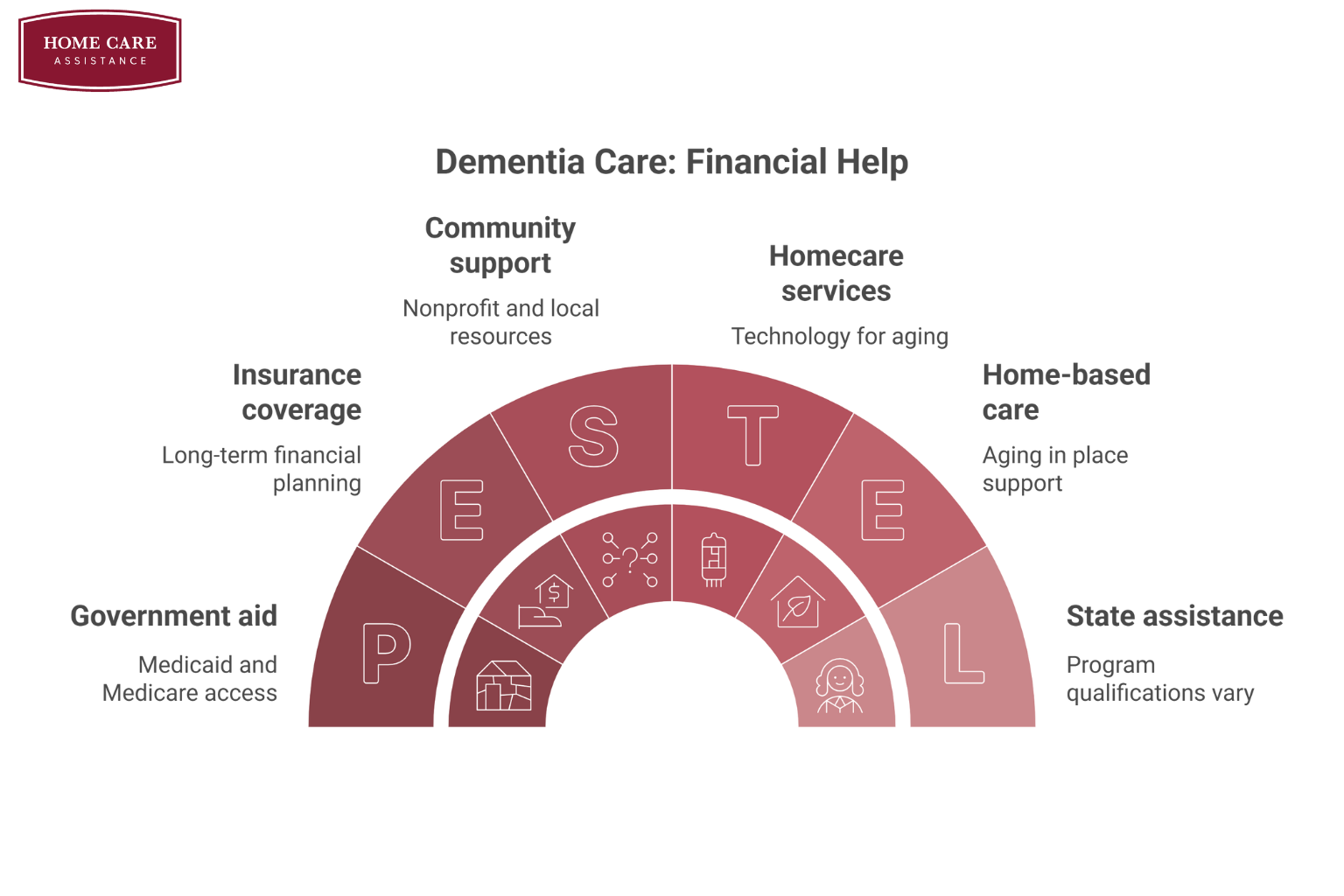Caring for a senior loved one with dementia can be overwhelming, especially when considering the financial burden. However, several financial assistance options are available to help families manage care costs, from government programs to private financial tools. Below, we explore various ways families can ease the financial challenges of dementia care.
Medicaid and Medicare
Medicaid and Medicare are two prominent government programs, but they serve different purposes:
- Medicaid – For low-income families, Medicaid covers long-term care costs, including nursing homes and some in-home care. Eligibility varies by state, so it’s worth exploring local Medicaid guidelines to understand your options. Many states also offer programs that help individuals receive care services at home, which is invaluable for families looking to keep loved ones in familiar settings.
- Medicare – While Medicare primarily covers medical care like doctor’s visits and hospital stays, it may also provide limited coverage for short-term skilled nursing care and hospice services. However, Medicare doesn’t cover long-term care or custodial care, so families should plan accordingly.
Understanding the differences between these programs and applying early can provide significant financial relief.
The type of homecare services Anchorage, AK, seniors need can vary. Some need assistance a few hours a day, while others require more extensive around-the-clock assistance. At Home Care Assistance, we tailor our care plans based on each senior’s individual care needs, and the plans can be adjusted at any time. We are a trusted provider of respite and 24-hour care, and we also offer specialized Alzheimer’s, dementia, Parkinson’s, and stroke care for seniors.
Veterans’ Benefits
For families of veterans, the Department of Veterans Affairs (VA) offers benefits that can cover dementia care:
- Aid and Attendance (A&A) pension – Veterans and their surviving spouses may qualify for this benefit if they require help with daily living activities, such as dressing, bathing, or eating.
- Housebound pension – This is available for veterans who are substantially confined to their homes.
Additionally, VA medical centers often provide specialized care for conditions like dementia. Families should contact their local VA office to determine eligibility and start the application process.
Long-Term Care Insurance
If your loved one purchased long-term care insurance before the dementia diagnosis, this can significantly offset the costs of care. Long-term care insurance typically covers services such as:
- Nursing home stays
- Assisted living facilities
- Memory care units
- In-home caregiving
Policies vary widely, so it’s important to review the terms and understand what’s covered. While not everyone has this type of insurance, it serves as an important reminder to plan early when possible.
Aging in place can present a few challenges for seniors living with dementia. However, they can still live independently at home with the help of professional dementia care. Anchorage families can rely on Home Care Assistance to provide their elderly loved ones with mental and social stimulation, timely medication reminders, assistance with meal prep, and much more. Our caregivers are available around the clock to help your loved one live a happier and healthier life.
Nonprofit and Community Resources
Nonprofit organizations and community programs can provide financial assistance, support, and services. Some key organizations include:
- Alzheimer’s Association – Offers grants, support groups, and resources for families navigating dementia care
- Area Agencies on Aging (AAAs) – Provide local resources, caregiver support programs, and respite care services
- 501(c)(3) charities – Subsidize caregiving costs or provide free services like adult daycare
These resources may not cover all expenses but can alleviate the financial and emotional toll of caregiving.
State and Local Assistance Programs
Many states have additional programs to assist families managing dementia care costs. For example:
- State Health Insurance Assistance Programs (SHIP) – Provide free counseling and assistance for Medicare and Medicaid
- State Medicaid waivers – Offer waivers that allow Medicaid to cover in-home care services instead of nursing home placements
- Property tax relief programs – Available in certain states to reduce the financial pressure on caretakers who provide home-based care
It’s important to explore what your state offers, as these programs vary greatly in terms of qualifications and benefits.
One of the most challenging tasks of helping an elderly relative age in place safely and comfortably is researching agencies that provide home care. Turn to Home Care Assistance for reliable, high-quality in-home care for aging adults. We offer 24-hour live-in care for seniors who require extensive assistance, and we also offer respite care for family caregivers who need a break from their caregiving duties. To learn about our quality-assured services, give us a call at (907) 770-0907 today.

